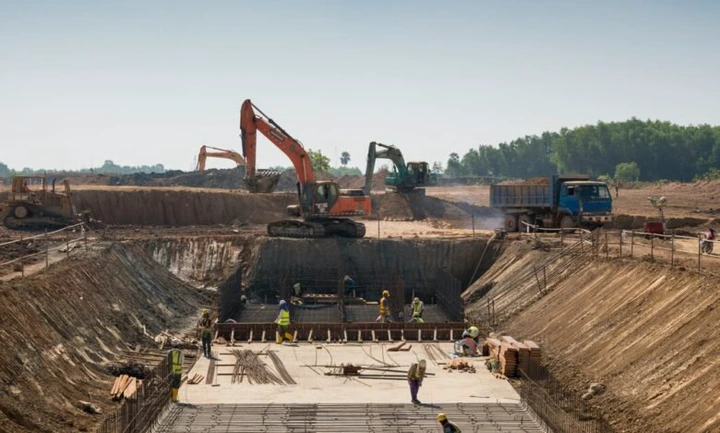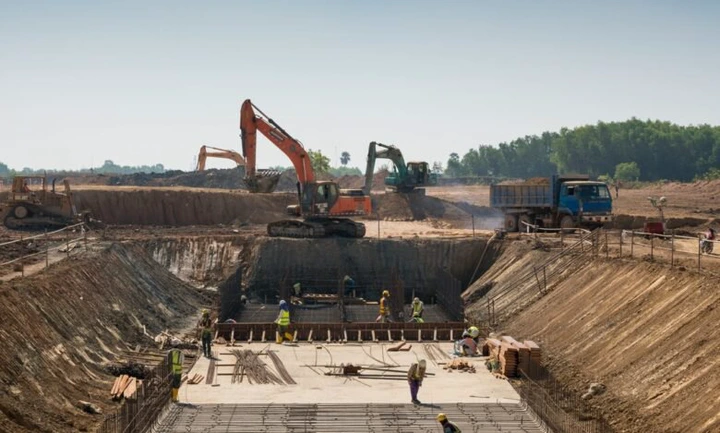Nigeria, frequently hailed as the “Giant of Africa,” boasts one of the most substantial economies on the continent, propelled by a varied array of industries. With a focus on diversifying beyond oil, numerous sectors have surfaced as pivotal contributors to Nigeria’s economic advancement. Here are the top ten industries propelling Nigeria’s economic growth…
- Oil and gas- The oil and gas sector has long been the bedrock of Nigeria’s economy, playing a vital role in government revenue and foreign exchange earnings. Nigeria stands as one of Africa’s major oil producers, with extensive reserves concentrated mainly in the Niger Delta region. Despite efforts to broaden the economic base, the oil and gas industry continues to be a crucial pillar, bolstering a range of supporting services and sectors.
2.Agriculture
Agriculture in Nigeria is a cornerstone of the economy, engaging a significant segment of the population. The sector has experienced expansion through strategies targeting enhanced food output, diminished imports, and the advancement of agro-based enterprises. Noteworthy agricultural commodities encompass cassava, rice, maize, and yams. The government’s emphasis on agricultural progress is pivotal for ensuring food security and fostering employment opportunities.
3. Telecommunications
The telecommunications sector in Nigeria has experienced remarkable growth in recent times, fueled by the rising need for mobile and internet services. Leading telecom firms like MTN and Airtel have broadened their offerings, making substantial contributions to the GDP. This industry has also spurred development in associated sectors like mobile banking and e-commerce.
4. Construction
The construction industry in Nigeria has really taken off due to urbanization and infrastructure development. With the government working on improving roads, housing, and public facilities, this sector is crucial for economic growth. Projects like the Lagos-Ibadan railway and different housing schemes are set to boost connectivity and generate employment opportunities.

The renewable energy sector in Nigeria is becoming more prominent as the country tackles energy issues. With plentiful resources like solar and wind, investments in renewable energy projects are on the rise. This field not only tackles energy deficits but also generates employment and promotes environmental sustainability, aiding in the nation’s long-term economic progress.
6.IT
The IT sector in Nigeria is expanding swiftly, with a lively startup scene and a concentration on software development, cybersecurity, and data analytics. Nigeria boasts numerous tech hubs and innovation centers, nurturing entrepreneurship and drawing investments. Government backing for the tech field is crucial in propelling economic growth.
7. Manufacturing
The manufacturing sector in Nigeria is critical for the country’s economic diversification plan. It covers different areas like food processing, textiles, cement production, and chemicals. The government is actively pushing for local production to enhance manufacturing capacity and decrease reliance on imports, as seen in initiatives such as the Economic Recovery and Growth Plan (ERGP).
8. Tourism
Tourism in Nigeria holds great promise, given its abundant cultural heritage, varied landscapes, and historical sites. The government is actively advocating for tourism to broaden the economic base and draw foreign investments. The hospitality sector, comprising hotels and restaurants, is expanding due to the uptick in both domestic and international tourism.
9. Entertainment
The entertainment industry in Nigeria, especially Nollywood, stands as one of the globe’s largest film sectors. The expansion of the media and entertainment domain has spurred job opportunities and boosted cultural exports. The emergence of streaming platforms has broadened the audience for Nigerian content, playing a significant role in the country’s economic advancement.





















